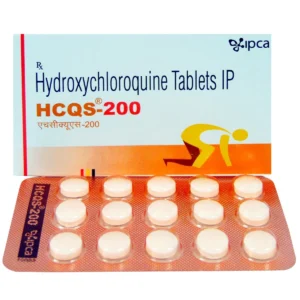Azee 250mg (Azithromycin)
Price range: $68.00 through $100.00
Free shipping on orders over $199
- Satisfaction Guaranteed
- Data Privacy And Security
- We Accepted WISE Payment
- 15% Off Coupon Code GD15
| Variation | Price | Quantity | Add To Cart |
|---|---|---|---|
| 60 Tablet/s | $68.00 |
|
Add to cart |
| 90 Tablet/s | $85.00 |
|
Add to cart |
| 120 Tablet/s | $100.00 |
|
Add to cart |
Description
What is Azithromycin (Azee 250mg)?
Azithromycin 250 mg, often sold under the brand name Azee 250mg, is an antibiotic that is commonly prescribed to treat a variety of bacterial infections. It belongs to a class of antibiotics known as macrolides. Azithromycin is available in different forms, including tablets, capsules, and liquid suspension, making it convenient for various age groups.
How to Use Azithromycin
Using Azithromycin effectively is crucial for its success in treating infections. Here’s a step-by-step guide on how to use Azithromycin 250 Mg:
- Prescription: Azithromycin is a prescription medication, so it is essential to consult a healthcare professional to determine if it is the right treatment for your infection.
- Dosage: The dosage of Azithromycin will depend on the specific infection being treated. It is crucial to follow the prescribed dosage and never take more or less than recommended.
- Timing: Take Azithromycin as directed by your healthcare provider. It is typically taken once a day, with or without food, depending on the specific product. Be consistent with the timing.
- Duration: Complete the entire course of Azithromycin, even if you start feeling better. Stopping the medication prematurely can lead to the infection returning or becoming resistant to the antibiotic.
How Should I Take Azithromycin?
Taking Azithromycin should be done with care and precision:
- Azithromycin can be taken with or without food.
- Swallow the tablet or capsule whole with a full glass of water.
- For the liquid suspension, measure the correct dose using the provided measuring spoon or cup.
- Shake the suspension well before each use.
- If you are prescribed Azithromycin as a powder for oral suspension, mix it with water as directed.
It’s important to follow the instructions provided with your medication and seek clarification from your healthcare provider if you have any doubts.
Side Effects
Common side effects include:
- Nausea
- Vomiting
- Diarrhea
- Stomach pain
- Headache
- Dizziness
- Skin rash
These side effects are usually mild and temporary. If they persist or worsen, consult your healthcare provider.
In rare cases, Azithromycin 250 Mg may cause more severe side effects. Seek immediate medical attention if you experience:
- Severe diarrhea
- Irregular heartbeat
- Signs of liver problems (e.g., persistent nausea, yellowing of the eyes or skin, dark urine)
- Signs of a new infection (e.g., fever, chills, sore throat)
Precautions
Before using Azithromycin, consider the following precautions:
- Allergies: Inform your healthcare provider if you are allergic to Azithromycin 250 Mg or any other antibiotics.
- Medical History: Share your medical history, especially if you have liver or kidney disease.
- Pregnancy and Breastfeeding: Discuss the risks and benefits with your doctor if you are pregnant or breastfeeding.
- Concomitant Medications: Inform your healthcare provider about all the medications, vitamins, and herbal products you are taking.
Interactions
Azithromycin 250 Mg may interact with other drugs, potentially affecting its effectiveness or causing side effects. It is crucial to inform your healthcare provider about all the medications you are taking.
Does Azithromycin Oral Interact with Other Drugs You Are Taking?
Here are some examples of drugs that may interact with Azithromycin:
- Antacids: If you take antacids that contain aluminum or magnesium, they may reduce the absorption of Azithromycin. Take Azithromycin at least 1-2 hours before or after taking antacids.
- Warfarin: Azithromycin may increase the effects of warfarin, leading to an increased risk of bleeding. Regular monitoring of blood clotting parameters is essential.
- Cyclosporine: The combination of Azithromycin and cyclosporine can increase the levels of cyclosporine in the blood, potentially leading to kidney problems.
This is not an exhaustive list, and there may be other drugs that interact with Azithromycin. Always consult your healthcare provider for comprehensive information.
Dose
Here’s a table summarizing the recommended doses of Azithromycin for various conditions:
| Condition | Dosage |
|---|---|
| Community-Acquired Pneumonia | 500 mg on the first day, followed by 250 mg once daily for 2-5 days |
| Sinusitis | 500 mg once daily for 3 days |
| Skin and Skin Structure Infections | 500 mg once daily for 2 days |
| Genital Ulcer Disease | A single 1-gram dose |
| Chlamydia | A single 1-gram dose |
Overdose
In the event of an Azithromycin overdose, seek immediate medical attention or contact a Poison Control Center. Overdosing may result in symptoms such as severe nausea, vomiting, diarrhea, or hearing loss.
Notes
- It’s essential to complete the full course of Azithromycin as prescribed, even if symptoms improve before the medication is finished.
- Azithromycin should be stored at room temperature, away from moisture and light.
- If your symptoms worsen or do not improve while taking Azithromycin, consult your healthcare provider.
Missed Dose
If you miss a dose of Azithromycin, take it as soon as you remember. If it’s close to the time for your next dose, skip the missed dose and resume your regular dosing schedule. Do not double the dose to catch up.
Storage
Proper storage of Azithromycin is crucial to maintain its effectiveness. Here are the storage guidelines in table format:
| Storage Condition | Azithromycin Tablets | Azithromycin Suspension |
|---|---|---|
| Temperature | Room temperature | Room temperature |
| Protect from light | Yes | Yes |
| Keep the container tightly closed | Yes | Yes |
| Dispense in the original container | Yes | Yes |
Frequently Asked Questions (FAQ)
- What is the recommended Azithromycin dosage for children?
- The dosage for children is based on their weight and the specific infection being treated. It is determined by a healthcare provider.
- How quickly does Azithromycin work?
- Azithromycin typically starts working within a few days. It’s crucial to complete the full course for the best results.
- Can I drink alcohol while taking Azithromycin?
- It’s generally safe to have moderate alcohol while on Azithromycin, but consult your healthcare provider for personalized advice.
- Is Azithromycin effective against viral infections like the common cold or flu?
- No, Azithromycin is an antibiotic and is not effective against viral infections.
- Can I stop taking Azithromycin if my symptoms improve before the course is finished?
- No, it’s essential to complete the full course to ensure the infection is completely treated and to prevent antibiotic resistance.
Conclusion
Azithromycin (Azee 250mg) is a widely used antibiotic that can effectively treat a range of bacterial infections. However, it’s essential to take it as prescribed, be aware of potential side effects, and follow the necessary precautions. If you have any concerns or questions about Azithromycin 250 Mg, consult your healthcare provider.
Additional information
| Active Ingredient | Azithromycin |
|---|---|
| Indication: | Bacterial infections of the eye, Conjunctivitis, Bacterial infections |
| Manufacturer: | Cipla Ltd |
| Strength: | 250mg |
| Packaging: | 1, 3, 6, 10 Tablets in Strips |
| Delivery Time: | 6 To 15 days |






Frech24528 –
Great service, tracked delivery, easy to pay, quality products!